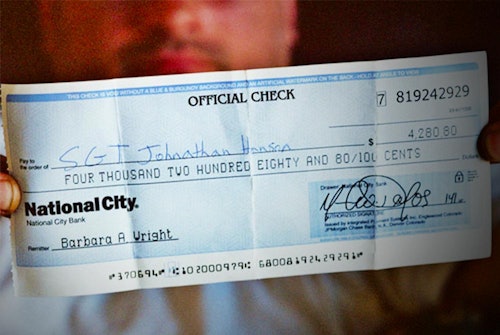- What Kind of Preparer Do You Need?
- Types of IRS Tax Accountants
- How to Choose an IRS Tax Accountant
- Questions to Ask a Potential IRS Tax Accountant
- Red Flags of Fraudulent IRS Tax Accountants
- How to Beat Tax Preparer Fraud
- How to Report Tax Preparer Fraud
- Frequently Asked Questions
Finding a good tax preparer can be a huge help in the present but may even save you from any headaches in the future. Here are our tips for choosing a tax preparer and how to avoid getting scammed by fraudulent accountants.
What Kind of Preparer Do You Need?
First, you’ll need to figure out what type of IRS tax accountant you’ll need. Anyone with an IRS Preparer Tax Identification Number can essentially help you with your return, but not all accountants offer the same experience, skills, or qualifications.
And although you can hire any tax accountant, whether they are in-state or not, local tax preparers may have more knowledge about your specific city and state rules.
If you one had a full-time job last year and received a W-2 from your employer, you could realistically use any licensed IRS tax accountant or online preparation services such as H&R Block or TurboTax to complete your tax return this year.
However, if your tax situation is a little more complicated—you changed jobs a few times, do freelance work, or became your own boss—you may need an expert to assist with your return.
Types of IRS Tax Accountants
There are two differences to note before choosing a tax accountant, dependent on whether you want representation rights should you be audited or run across any other legal issues.
- Unlimited Representation Rights: These tax professionals are certified to represent clients on any tax matters regarding audits, appeals, or payment/collection issues. This group includes certified public accountants (CPAs), enrolled agents, and attorneys.
- Limited Representation Rights: Some preparers have more limited credentials and cannot represent their clients regarding appeals or collection issues, even if they prepared your return.
Though each taxpayer situation is unique, it can be beneficial to choose an unlimited representation rights preparer to ensure you’re covered if things go wrong.
Certified Public Accountants
CPAs are licensed by state boards of accountancy, the District of Columbia, and U.S. territories who have passed the Uniform CPA Examination.
They have completed their undergraduate degree in accounting and have met established experience and good character requirements by their respective boards of accountancy. They must also comply with ethical requirements and work on developing their skills through specified levels of continuing education to maintain their active license.
Enrolled Agents
Enrolled agents are licensed by the IRS and are subject to a suitability check. They must also pass an exam to show they are proficient in federal tax planning, individual and business tax return preparation, and representation. As enrolled agents, they must complete 72 hours of continuing education every 3 years.
Attorneys
Licensed by state courts, the District of Columbia or their designees, attorneys have a degree in law and have passed a bar exam. Often, they maintain on-going continuing education and professional character standards and, along with the range of services they offer, will specialize in tax preparation and planning.
How to Choose an IRS Tax Accountant
Ask About Their Specialization
IRS tax accountants can specialize in a range of accounting areas such as government or business accounting, wealth management and estate planning, or only focus on auditing financial statements. It’s a good idea to ask whether they specialize specifically in individual income tax returns.
Verify Their Credentials
All tax preparers are required to register with the IRS and have a Preparer Tax Identification Number (PTIN). To verify that a CPA is registered with a PTIN, search the IRS’ Directory of Federal Tax Return Preparers with Credentials.
You’ll also want to ensure they are licensed with the state you are filing your taxes in. You can check this by searching your state's board of accountancy. These databases typically offer important information such as their license status, license issue and expiration dates, and any disciplinary actions or suspensions.
Review Their Experience
Generally, CPAs with years of experience have a deeper understanding of the tax code than a newly certified accountant, but that’s not always the case.
You can find great CPAs who only have a year or two under their belt just as easily as you can find bad tax preparers who have several years of experience. So experience shouldn’t necessarily be a dealbreaker, but it’s smart to ask about their background and learn more about them.
One easy way to find this out is to ask about their experience filing tax returns electronically. CPAs who file 11 or more tax returns per year are required by the IRS to offer e-filing services. If they don’t, it could mean they are not very experienced.
Confirm They’ll Sign on the Dotted Line
The law requires any paid preparer to sign their clients' returns and include their PTINs. Before you select an IRS tax accountant, confirm that they’ll sign your tax return and represent you before the IRS.
Review Before Signing
Never sign a blank tax return, fraudulent preparers could put anything on your return, such as their own bank account number and run off with your refund.
Discuss Their Preparer Fees
Tax preparer fees can vary. Some charge by the hour, others a flat fee, and some scale it based on the complexity of your return. Ask if their fees include both federal and state returns and avoid any CPA choosing their base fee on how much you’ll get back on your return. This is a red flag.
The average for a non-itemized Form 1040 was $220 in 2020, according to the National Society of Accountants. If you need an itemized return, that fee may be closer to $323.
Questions to Ask a Potential IRS Tax Accountant
- How long have you been preparing taxes?
- What licenses or designations do you have?
- What are your tax issue concentrations?
- What information will you need from me to file my taxes? Typically, they’ll need:
- Your SSN (along with dependents)
- A copy of your most recent tax return
- Income statements and tax forms
- Proof of expenses if you’re doing an itemized return
- Will the work be outsourced or is it all done in-house?
- Can you estimate how long will it take you to finish my tax return?
- What are your base fees?
- Are your fees negotiable?
- Are there separate federal and state filing fees?
- Can you put your fees in writing?
- What is your privacy policy?
- Can I contact you throughout the year for tax advice?
- What other services do you offer?
Red Flags of Fraudulent IRS Tax Accountants
Unfortunately, tax preparer fraud is common, but if you know the signs, you can avoid getting scammed this tax season.
Red flags of fraudulent IRS tax accounts include:
- Requiring cash payments
- Not offering a receipt
- Charging fees based on your refund amount
- Claiming they can get you a big refund without looking at your forms
- Saying the refund will be deposited into their bank account first and they'll pay you once it has been received
- Writing “self-prepared” on your return or putting a business label on it rather than signing the form by name
Tax Return FAQs
Have more questions regarding your 2021 tax return? Check out our FAQ page to make submitting your tax returns and collecting your refund easier.
How to Beat Tax Preparer Fraud
Do’s
- Do confirm that your tax preparer has an IRS-issued PTIN
- Do check that your return is signed by your preparer and includes their PTIN
- Do verify that you can reach your preparer outside of tax season
- Do review your full return and ask questions if something looks off or isn’t clear
- Do double-check how you’ll receive your refund including your bank account and routing numbers if getting direct deposit
Don'ts
- Don’t hire anyone without a PTIN
- Don’t use a tax preparation website without a PTIN
- Don’t hire a tax preparer claiming they can get you a big refund without looking at your financial situation
- Don’t sign a blank or incomplete tax form
- Don’t open attachments or click on links in emails if you don’t know the tax preparer sending the email
How to Report Tax Preparer Fraud
If you think you have been scammed by a tax preparer, it’s important to file a complaint with the IRS. There are various steps to take depending on whether the scam impacts your tax return or not and whether you feel your identity was stolen.
You can report fraudulent activity or misconduct:
- Form 14157 (Return Preparer Complaint)
- Form 14157-A (Tax Return Preparer Fraud or Misconduct Affidavit)
- Form 14039 (Identity Theft Affidavit)
Taxpayers can also report IRS impersonation scams to TIGTA.gov or phishing emails to [email protected].











Comments